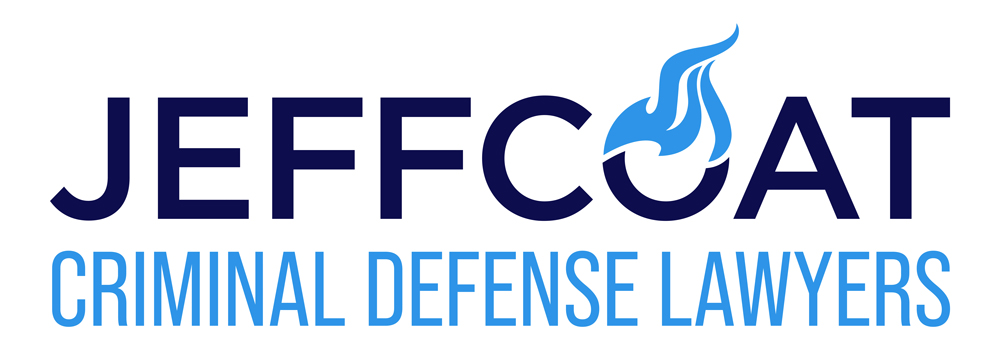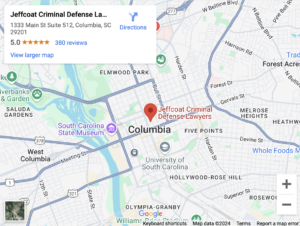Know Your Rights
We at Jeffcoat Criminal Defense Lawyers take great pride in defending those accused of crimes. Criminal defense attorneys have been called “liberty’s last champions” because we fight to protect our clients’ constitutional rights and to secure their freedom. To quote defense attorney John Delgado: “If the prosecutor represents the government, we [as criminal defense attorneys] represent the Constitution.”
Click here to learn questions about other frequently asked questions about your legal rights.
The defense attorneys of Jeffcoat Criminal Defense Lawyers pledge to do the following for our clients:
- Clearly explain the confusing legal system and court procedures to you and your family
- Competently represent your best interests
- Diligently investigate the case and intelligently prepare your defense
- Effectively communicate with you during this overwhelming and stressful process
- Know the law and the tactics used by police and prosecutors to obtain a conviction
- Zealously advocate on your behalf
When facing criminal charges, you are guaranteed certain rights by both the United States and South Carolina Constitutions. Jeffcoat Criminal Defense Lawyers will ensure your rights are upheld:
Right to Counsel
Sixth Amendment to the United States Constitution and Article I, Section 14 of the South Carolina Constitution
You have the right to a lawyer who will represent you against the government’s accusation.
If you cannot afford to hire an attorney, a lawyer commonly known as a public defender will represent you.
If you have the means, you should hire an attorney who will fight to protect your constitutional rights, reputation, and freedom.
Right to Remain Silent
Fifth Amendment to the United States Constitution and Article I, Section 12 of the South Carolina Constitution
You have the right to defend yourself against self-incrimination. In other words, you do not have to answer any questions without the advice and presence of your lawyer.
Right to Refuse Search or Seizure
Fourth Amendment to the United States Constitution and Article I, Section 10 of the South Carolina Constitution
You have the right to refuse unreasonable searches, seizures, and invasions of privacy of your person or property.
Note, there are exceptions for police officer safety (e.g., pat-down search), exigent circumstances (e.g, hot pursuit or destruction of evidence), or a finding of probable cause.
Right to Refuse Tests, Lineups, and Identification Procedures
Fifth Amendment to the United States Constitution and Article I, Section 10 of the South Carolina Constitution.
You have the right to refuse any test, lineup, or identification procedure. For DUI cases, this includes field sobriety tests and the breath test DataMaster DMT (mistakenly known as the Breathalyzer test).
Please note: Pursuant to South Carolina’s implied consent law, if you refuse to submit a breath sample, your driver’s license will be suspended for six months unless you request a contested case hearing in the administrative law court within thirty days of your arrest. However, if you provide a breath sample and your blood-alcohol level is above 0.15, your driver’s license will be suspended for thirty days unless your request a contested case hearing.
Right to Confrontation
Sixth Amendment to the United States Constitution and Article I, Section 14 of the South Carolina Constitution
You have the right to cross-examine any witness the government uses to prove the allegations against you. Your lawyer can question the police and any person(s) who testify against you.
Right to Due Process
Fifth and Fourteenth Amendments to the United States Constitution and Article I, Section 3 of the South Carolina Constitution
You must not be deprived of life, liberty, or property without due process of the law. You have the right to a fundamentally fair justice system, and your lawyer can fight against any unfair procedure that occurred during the police investigation, arrest, or trial.
Right to Compel Witnesses
Fifth and Fourteenth Amendments to the United States Constitution and Article I, Section 14 of the South Carolina Constitution
You have the right to call any witnesses in your defense. If there is someone who knows the truth and can contradict the state’s evidence, your lawyer can call them to testify on your behalf and require their attendance in court.
Right Against Cruel and Unusual Punishment
Eighth Amendment to the United States Constitution and Article I, Section 15 of the South Carolina Constitution.
You have the right against excessive fees and punishments that are arbitrary, patently unnecessary, degrading, or totally rejected throughout society.
Right to a Speedy and Public Trial by an Impartial Jury
Sixth Amendment to the United States Constitution and Article I, Section 14 of the South Carolina Constitution
You have the right to a speedy and public jury trial. You are protected from unnecessary delays between your indictment and the beginning of your trial.
Right to Bail
Eighth Amendment to the United States Constitution and Article I, Section 15 of the South Carolina Constitution.
You have the right to bail unless there is sufficient reason not to grant it. You are also protected against excessive bail.
Right to Present a Defense
Sixth and Fourteenth Amendments to the United States Constitution and Article I, Section 14 of the South Carolina Constitution
If you are facing a criminal charge, you have the right to present a complete defense to the charges against you.
Right to Unanimous Verdict
Article V, Section 18 of the South Carolina Constitution
In order to be convicted of a crime in federal and South Carolina courts, the jury must reach a unanimous guilty verdict. This ensures that the prosecution has proved its case beyond a reasonable doubt.
Right Against Double Jeopardy
Fifth Amendment to the United States Constitution and Article I, Section 12 of the South Carolina Constitution
Whether you were previously convicted or acquitted, you cannot be tried for the same offense twice. In other words, if you are acquitted of someone’s murder, you cannot be charged or tried for that person’s murder again.
Please note, this does not mean you cannot be charged with the same crime again. For example, if you have been convicted or acquitted of one person’s murder, you can still be charged with a different person’s murder.
RESOURCES
-
- U.S. Constitution: https://www.archives.gov/exhibits/charters/constitution_transcript.html
- Bill of Rights: https://www.law.cornell.edu/constitution/billofrights
- South Carolina Constitution: https://www.scstatehouse.gov/scconstitution/scconst.php
- https://www.scstatehouse.gov/code/t17c015.php
- https://www.scstatehouse.gov/code/t17c013.php
- https://www.scstatehouse.gov/code/t17c023.php
- https://www.judicial.state.sc.us/summaryCourtBenchBook/HTML/CriminalG.htm#G1
Visit Our Criminal Defense Law Firm Located in Columbia, SC
Jeffcoat Criminal Defense Lawyers
1333 Main St Suite 512, Columbia, SC 29201
(803) 200-2000
Open 24/7


